What a year it has been for the Indian animation industry! Especially, for the broadcasters, as kids literally make their world go around! The kids genre in India is growing everyday and big names in the business, like Sony YAY!, Discovery Kids, Cartoon Network, Nickelodeon have made a mark with their slate of IPs and interesting lineup of shows.
2018 has witnessed an upward spurt in viewership in the kid’s category with animated IP rush enabling the numbers to rise by 10 per cent (from average 499 GRP to 550 GRP). The channels focused on children as audience observing their growing influence on choices, preferences and consumption habits. Fresh debuts for children in the competitive space of TV shows, have actually helped in growing the audience which indicates that more children are opting to watch new programming. In fact, most of them have developed their in-house team of animators and creative artists to stay a step ahead in the league.

The emerging trends this year clearly reflected that flagship shows and localising content in regional languages pay dividends. Kids’ entertainment channels prosper on the dominance of flagship shows. 70 per cent of airtime and 80 per cent of GRP for leading channels in India comes from one leading show. Thus reiterating the fact that building a long-term relationship with toon characters, around whom shows, merchandise, and digital engagement are built, is the most effective manner to engage with young audiences.
Keeping this in mind, Sony YAY! has adapted and developed kids’ shows suited to their preferences and such trends help further validate their approach. The consumption patterns that have significantly grown this year, further ensures our focus on homegrown toon characters.
SPN kids genre business head Leena Lele Dutta mentioned, “We evaluate concepts on merits and not on who it is coming from. It is a matter of chance that the statistics so far has been skewed towards the broadcaster created IPs and not the ones which have come from production houses.”
Kids generally treat their favourite characters as their best friends. Thus, they prefer watching them on multiple platforms. Digital platforms has notably increased in 2018 with content going digital. That has helped many broadcasters fulfill every kid’s demand, where they focus on curating content especially for their respective online channels.
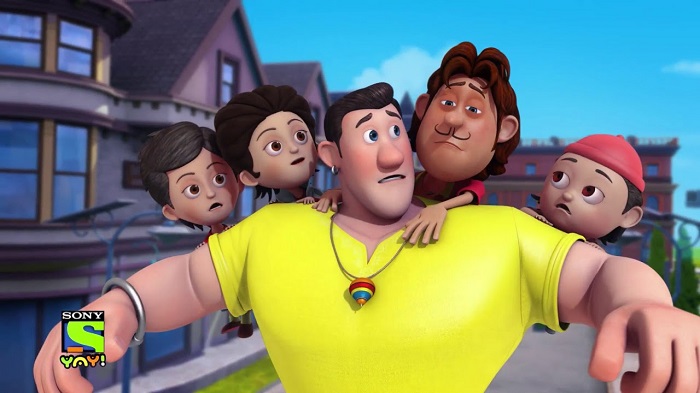
The response for shows like KickO and Super Speedo, Guru and Bhole, Honey and Bunny, Prince Jai and Powerful Viru, Fab 5 has been fantastic so far. In the last one year, Sony YAY!’s reach has grown by 57 per cent and the channel has grown to 17.2 million viewers in August 2018 according to BARC, India U+R, 2-14 All NCCS, 24 hours and Universe size 185 Million. Their regular focus group studies have shown the tremendous love that kids have for KickO and Honey and Bunny.
Dutta added, “Kids are engaged on all the digital platforms through games, shows, contests on social media and so on. That creates a strong affinity towards their favourite toons. Building upon toon characters and developing them as digital properties have had our audience respond enthusiastically. Using social media also helps in strengthening this relationship. We’ve got to keep kids engrossed by offering them the best of everything.”
Sony YAY! is the first kid’s channel to have five original content shows in one year of the launch, KickO and Super Speedo being the most successful one. Also they have many more in the pipeline and have already created 52 episodes of each show and the second season of 52 episodes of one of them, is under production.
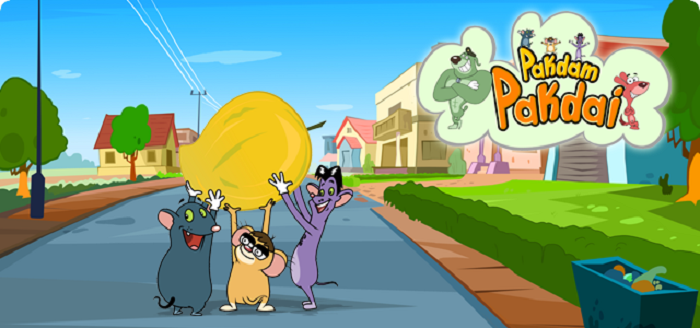
Nickelodeon too, has always identified white spaces and launched characters that are groundbreaking. Each of their local home-grown IPs from Pakdam Pakdai, Motu Patlu, to Shiva and Gattu Battu, they have all introduced kids to new genres of entertainment. With the launch of its fifth IP, Rudra-Boom Chik Chik Boom, the franchise has forayed into the untapped genre of magic in the country, emerging as a franchise with the widest array of local IPs. With a local content library of over 350 hours, Nickelodeon is now poised as a franchise with the largest and most versatile homegrown content library in the category.
Viacom18 head of kids entertainment cluster Nina Elavia Jaipuria noted, “ We have been focused at creating an entire ecosystem for kids that extends beyond television with our successful portfolio of iconic ‘Made in India IPs’. The launch of Rudra has added further depth to our portfolio and has provided impetus to our objective of engaging kids and creating a dynamic kids ecosystem.”
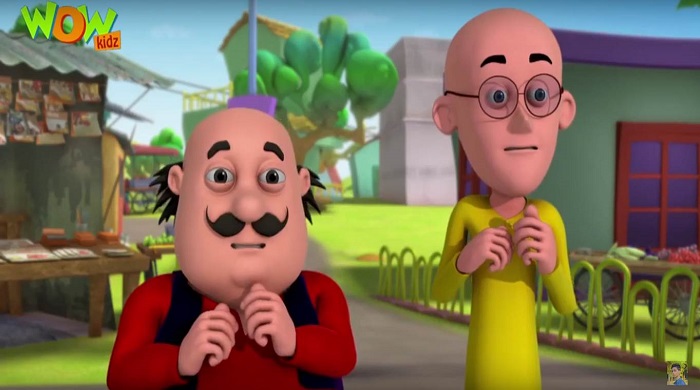
Turner’s IPs such as Roll No. 21, has also enjoyed quite a limelight with local flavours, new treatment and smart execution as it is the number one show on Cartoon Network in India. This just reaffirms that authenticity is the key to the success of any show.
Turner India executive director and network head – kids, South Asia, Krishna Desai also reflected on the same line, “Being at the forefront of kids’ entertainment, we are looking at producing IPs and characters that are not only location-based but also have the ability of resonating with viewers across the globe.”
Similarly, Discovery Kids too, looks back at 2018 with lot of satisfaction as they ticked all major KPIs that they had set for themselves. But success didn’t come easily. More than year’s hard work in IP development, production, strategy and consumer understanding went behind this. Their aim was to take Discovery Kids from ninth position (in the 12 channel kids genre), to the top tier of the league.
The launch of Little Singham and Bandbudh Aur Budbak helped Discovery Kids increase its ratings by more than 500 per cent (8 Million TVTs in first week 1 to 42 Million TVTs in week 50) from the beginning of the year. Infact, Discovery Kids emerged as the fastest growing kids channel in the industry and is now consistently amongst the top five channels week on week in the category.
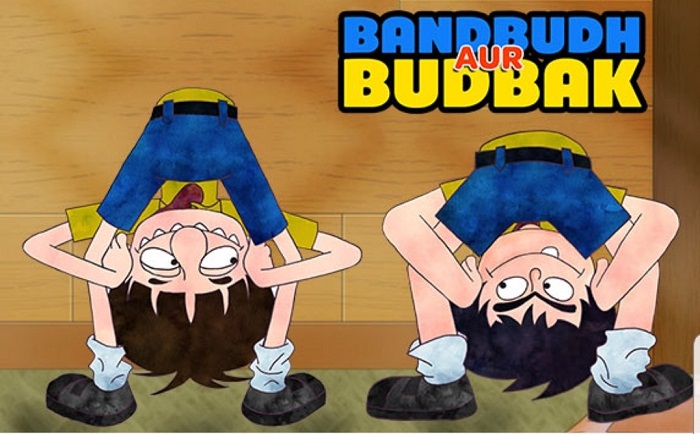
Discovery Kids business head Uttam Pal Singh said, “We followed a bold approach and to take a contrarian view on all aspects of the product reinvention – consumer research and understanding, to programming, distribution, marketing and putting together the right team. Basically, we did things differently and we did it at scale – we made moves which are not the norm in the industry. I am happy that the strategy worked in our favour.”
Little Singham has also whipped up huge advertiser interest with the growing popularity including FMCG brands like Dabur Red Paste, Britannia Cakes, Dettol, Flipkart, and Heinz- Glucon D and B. This IP has worked wonders for the broadcasting company as advertisement partnerships and generation of revenue is directly proportional to each other.
This brings our focus to licensing and merchandising deals these biggies get into, to establish their IPs and themselves as a bigger brand in a better way. With local original shows gaining popularity, there’s an inherent demand for agencies to provide holistic licensing and branding solutions to enter domestic and neighbouring markets for expansion, co-productions, increasing awareness of IP rights, symbiotic business deals and increasing consumer demand from a young Indian population with heavy pockets, L&M has gained tremendous significance.
According to a recent report (World Trademark Reviews’ ‘The rise of licensing in India’, May 2018), retail licensing in India is estimated at $1.26 billion of which, entertainment licensing is valued at $406 million.
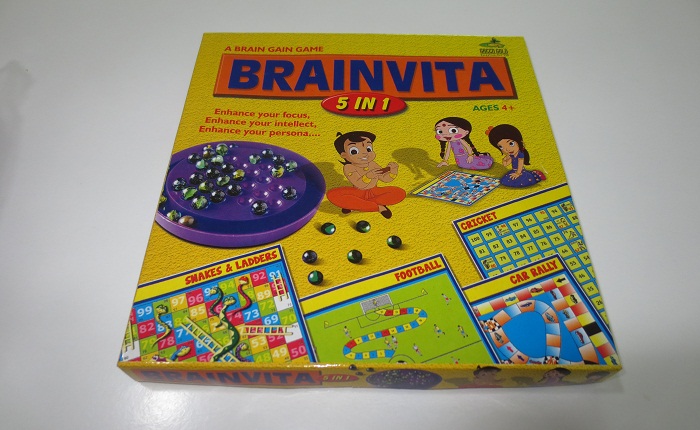
Amongst the leaders in the L&M business in India are- Disney India, Turner India, Viacom18, Green Gold Animation, Cosmos-Maya, Toonz Animation and a clutch of selected agencies like Dream Theatre. The products range from food items, apparels, toys, board games, ‘Back to schools’ products (tiffin boxes, pencil boxes, backpacks, stationery products, sports it items and so on), books and more.
The domestic breakout in the sector, came with the massive nationwide popularity of Chhota Bheem along with other local characters such as Motu Patlu, Little Singham which has helped propel the industry forward. Infact, Chhota Bheem is one of the most sought brands in the South Asian markets.
Says Cosmos-Maya CEO Anish Mehta, “There are more than 400 million kids in India which is a huge opportunity in the L&M sector. Chhota Bheem and Motu Patlu are strong cases of Indian IPs which are bringing about this sort of a co-existence between the two businesses and we are currently focused on developing the successor to this legacy.”
In 2011, Chhota Bheem had around 10 active licensees and has grown to 60 active licensees over the years, Chhota Bheem has been licensed by more than 150 brands and the brand is currently present in more than 12 countries and growing. They also had a successful licensing deal with Global Village, Dubai for two years.
Comments Green Gold Animation CEO Rajiv Chilaka, “The last 10 years Bheem has seen a lot of milestones in the L&M circle. We have been in the top league and the biggest licensor when it comes to toon character- licensing not only in merchandise but also in events, mobile gaming, e commerce, CSR initiatives and more. We’re keen to explore more licensing opportunity beyond the boundaries of our country.”

Besides L&M, marketing strategies are equally lucrative to gain traction to these IPs and shows. For instance, Sony YAY! celebrated Teacher’s Day this September, by bringing the second season of their flagship initiative, Heroes Behind the Heroes by acknowledging few eminent personalities across myriad fields such as Indian tennis player Sania Mirza, choreographer Terence Lewis, Indian film director, producer and screenwriter Subhash Ghai, Nobel Peace Prize recipient and Kailash Satyarthi and Indian Sarod player Ustad Amjad Ali Khan Bangash. This event was promoted by their successful IP- KickO.
They also collaborated with Domino’s Pizza, a huge brand in itself, to celebrate their second birthday with children from Hope Foundation. The channel treated the kids to a host of fun activities starting with a screening of an episode from KickO and Super Speedo and unlimited pizzas.
Similarly, Nickelodeon also conducted school contact programmes across 1000 schools and a dozen cities from Chennai to Chandigarh, to bring alive the magic into the classrooms with some fun games that encourage kids to focus and believe in the magic they possess, through their homegrown IP, Rudra.
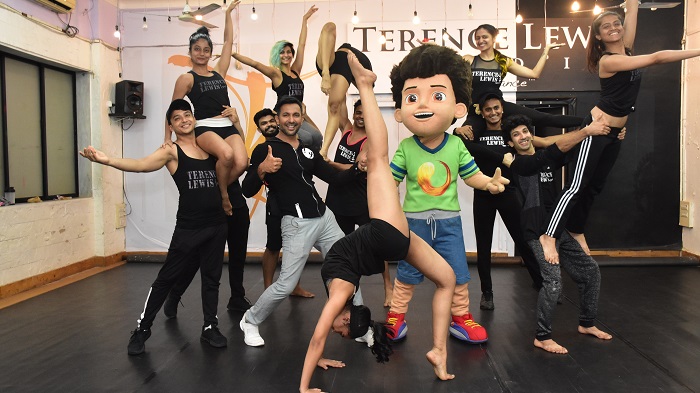
Little Singham also won the Best IP award at Indian Licensing Expo (ILE) and they just launched the second season on Ganesh Chaturthi. “This has been the most important milestone we have achieved- that Discovery Kids has been able to connect with kids audience like never before – this bond is very special for us, ” Pal Singh stated.
Animation in India anticipates a bigger and better 2019 with some really exciting stuff. Streaming powerhouse Netflix has taken up popular IP Chhota Bheem to create an original series Mighty Bheem. Also, Indian animation industry is now creating a buzz in the global market by showcasing themselves in international forums like MIPCOM, ATF and many more.
The industry has all the capabilities for all-encompassing viewership, with animated content being made not only for kids but also for grown-ups to enjoy. They definitely have huge potential of crossover to other territories. With the Indian broadcasters getting into local productions in a bigger way, we can be confident of Indian animation standard being at par with global counterparts with extraordinary local characters and content being created, loved and cherished. Amen to that!
